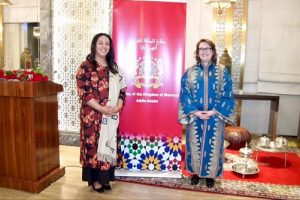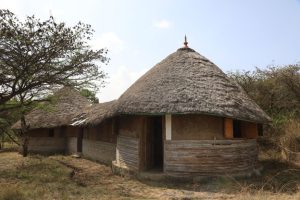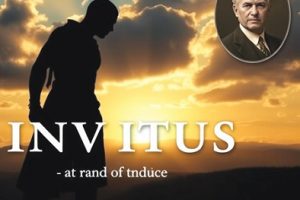
It may take little imagination to visualize how traditional African societies were more peaceful and more stable than the so-called modern ones. Of course there are tons of researches to support our contention that traditional Africans lived in peace and tranquility in the respective villages and that the level of conflict was at its lowest and inter-tribal wars were rarities. There was relatively little to worry about or fight for in terms of the acquisition of property or the conquest of territories near or far. “The major sources of conflicts in traditional African societies were land, chieftaincy, family property, honor, murder or matrimonial fall outs.”
That does not however mean traditional African societies were similar to the peace and happiness that we imagine can only be found in a heavenly environment. However, the little misunderstandings that emerged here and there were about a small plot of grazing land or water wells that belong to this or that tribe while the majority of the people were not even aware of such trivialities. Foreign invasions were fiercely resisted while local conflicts, which grew with the growth of society, were dealt with traditional methods that were set up in case of emergency. “The methods of performing conflict resolution in the traditional African societies are as follows: mediation, adjudication, reconciliation, arbitration and negotiation.”
Meanwhile, there were also events of historic proportions that disrupted peace and stability in traditional African communities in a big way and had to be dealt with self-defense and force. African people have never in their history gone out to conquer Europe or America while Europeans were consistently infringing upon the freedom and territorial integrity of African tribes that were then considered backward and even barbaric. The purpose of sending missionaries to Africa back in the 18th and 19th century was nothing else but to perform a “civilizing mission” by imposing European values on the traditional tribes that were living quietly before the arrival of conquerors with the Bible and then with guns.
There was no international law at that time with which conquests could be regulated and managed legally. Military superiority was the only weapons Europeans used to evict traditional communities from their tribal homelands and build settlements exactly the way European conquered the lands of Red Indians after the discovery of America by Christopher Columbus, as both were affected through brutal methods and with iron and fire. The basis for the Western idea of “might is right” which was widely practiced in subsequent centuries can be found in the moment of the white man’s decision to conquer the whole world and the peripheral lands in particular under various pretexts. Colonialism was thus born from this process and radically changed the physiognomy traditional African societies as well as the relationships between the conquering white settlers and the conquered tribal communities.
Although the colonial experience in Africa is solidly documented by the Europeans themselves, its disrupting effects were also portrayed in many works by African writers in the 20th century, that is to say, following the independence of African countries that lived under the yoke of colonialism for many centuries. “Things Fall Apart”, the classic novel by Nigerian writer Chinua Achebe is considered the best work of fiction that portrayed the colonial incursion in Nigeria and its effects on traditional tribal African communities in ways that no other writer had done it before him.
Although European colonialism left the continent relatively late, its consequences lingered long after its departure and down to this day, changing forms and evolving into different expressions. One of the political impacts of colonialism on African communities was the distribution of power and privileges along tribal lines and the emergence of African political elites that fought over irreconcilable territorial claims and counter-claims and the often controversial nature of the division of power among the local elites.
Thus, in the post-colonial period and after assuming independence, many African countries, were plagued by conflicts that erupted as a result of the colonial arrangements by European powers. The process of allocating power and privileges to the local elites and tribal leaders that was often deeply unfair created the basis for subsequent conflicts and even civil wars. Again, Nigeria during 1967-1970 is the best example of civil war that erupted after the country’s independence from British colonialism and the contradictory tribal claims for power that led to the civil war. Again a young Nigerian writer by the name Chimamanda Ngozi Adichie took up her pen to chronicle the Nigerian civil war and publishing her book entitled “Half of a Yellow Sun” more than half a century after the Biafra war.
Rwanda is another, more contemporary, case of a tragedy resulting from Belgian colonial rule that favored one tribe against another and created the conflict that claimed more than a million lives in just one hundred days. Attributing all the evils of African tribalism to colonialism would not only be unfair but would also be tantamount to underestimating or denying the role played African local elites in the development of bloody political disputes that led to genocides. It is also a pity that the role of elites in fomenting and nurturing tribal conflicts was acknowledged long after the damage was done in Rwanda, Burundi and other post-colonial African societies.
The failure of African elites to use their learning in order to find rational solutions to tribal conflicts was and is the single most serious mistake or shortcoming that led to genocides although there was enough local knowledge and wisdom that could be used to stem the tide of civil conflicts through dialogue. Again, this too was acknowledged lately. Africans have plenty of traditional conflict resolution alternatives to choose from in order to overcome past and current challenges. “Negotiation, mediation and arbitration often called ADR, Alternative Dispute Resolution, are the most well-known. Whether you are involved in a family or neighborhood disputes…these processes should be considered.”
Among the traditional conflict resolution tools, religion in Africa occupies a rather prominent place as the people are deeply religious or deeply spiritual. “African religion’s behavior is centered mainly on the human person or his or her life in this world.” With the consequence that religion is clearly functional or means to serve people to acquire earthly goods (life, health, fecundity, wealth, power and the like) and to maintain social cohesion and order.”
Traditional African societies are thus rich in traditional religions or belief systems that could be leveraged for peace building and preventing devastating conflicts. Once again, the task of creating a genuinely African peace and conflict resolution architecture squarely falls on the shoulder of the educated elites that could use their learning to address one of Africa’s nagging problems. African political elites largely shunned African traditional systems of conflict prevention and conflict resolution in the past. They tried and failed to implement the so-called modern systems of conflict management that were invented in academic circles outside Africa and this has led to an inward-looking process of seeking solutions within Africa at the last resort. One example of this is Ubuntu, “which is a south African philosophy which teaches that all humans are deeply interconnected.” According to available information, “The five core values of Ubuntu are, “survival, spirit of solidarity, compassion, respect and dignity” these are African values that were already present in traditional communities where the struggle for common survival required the prevalence of mutual assistance and support while the communities had hierarchical relationships and put human dignity at the center of their thinking. Ubuntu may be seen as an attempt to modernize the philosophy of African communal principles and extend its fields of application.
Ubuntu has also elements of religious morality and humanism because, “The spirit of Ubuntu is essentially to be humane and ensure that human dignity is always at the core of your actions, thoughts, and deeds when interacting with others. Having Ubuntu is showing care and concern for your neighbor.”
The other recently popular thinking concerns what is known as the Gaccaca court system that emerged in the wake of Rwanda’s 1994 genocide in order to handle the cases of alleged genocide perpetrators. “In the Gaccaca system, communities at the local level elected judges to hear the trials of genocide suspects accused of all crimes except planning of genocide. The courts gave lower sentences if the person is repentant and sought reconciliation with the community.”
The Gaccaca system was effective in preventing post-genocide retributions or revenges in Rwanda in the last 30 years. It has allowed the country to leave behind its bloody past and embark on a new course of reconciliation that has allowed it to catch up with its economic development priorities by unifying all citizens in a collective pact to forgive all those involved in the genocide except the leaders and planners. In this way Gaccaca has allowed Rwanda to set a good example of reconciliation and collective catharsis comparable to the South African Truth and Reconciliation Commission that help overcome racial hatred and the need for retribution.
Both Ubuntu and the Gaccaca court system have demonstrated that Africans are capable of evolving their own systems for overcoming conflicts and achieving peace building. There are also many such resources available in many African countries that are dealing with reconciliation and reconstruction of communities upset by high or low level conflicts. It is up to African intellectuals to try to unearth these instruments of peace building that are forgotten and bring them to life in such a way as to make them useful in the ongoing challenges. Africa will have to rediscover the old traditions of peace and humanity that had been undermined by colonialism and so far ignored by the educated elites that have been busy searching for solutions from outside Africa.
BY MULUGETA GUDETA
THE ETHIOPIAN HERALD THURSDAY 2 NOVEMBER 2023





